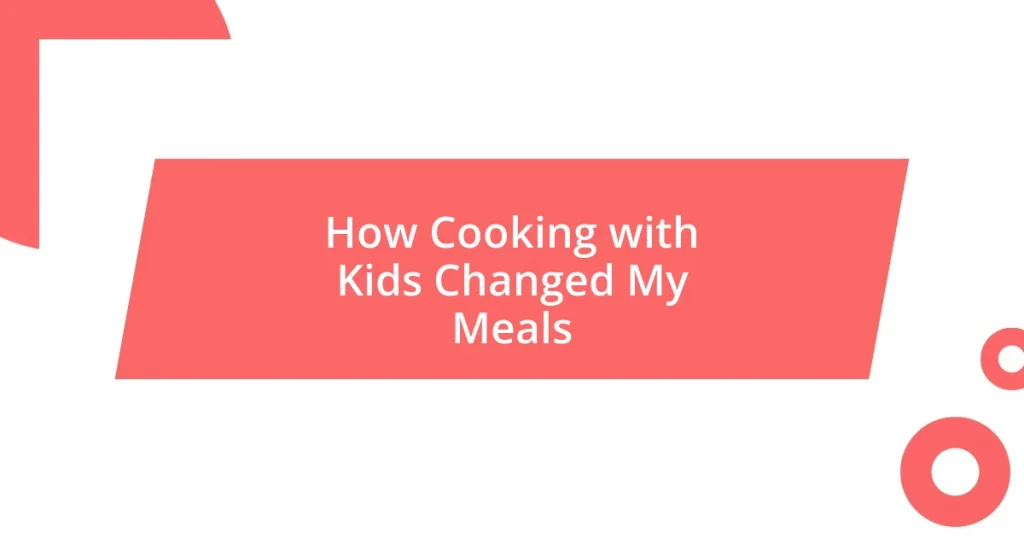Key takeaways:
- Cooking together fosters a strong family bond, promotes open communication, and creates lasting memories.
- Involving kids in meal preparation enhances their confidence and encourages creativity in choosing and experimenting with ingredients.
- Addressing kitchen challenges through collaboration and communication makes meal preparation more enjoyable and educational for everyone involved.
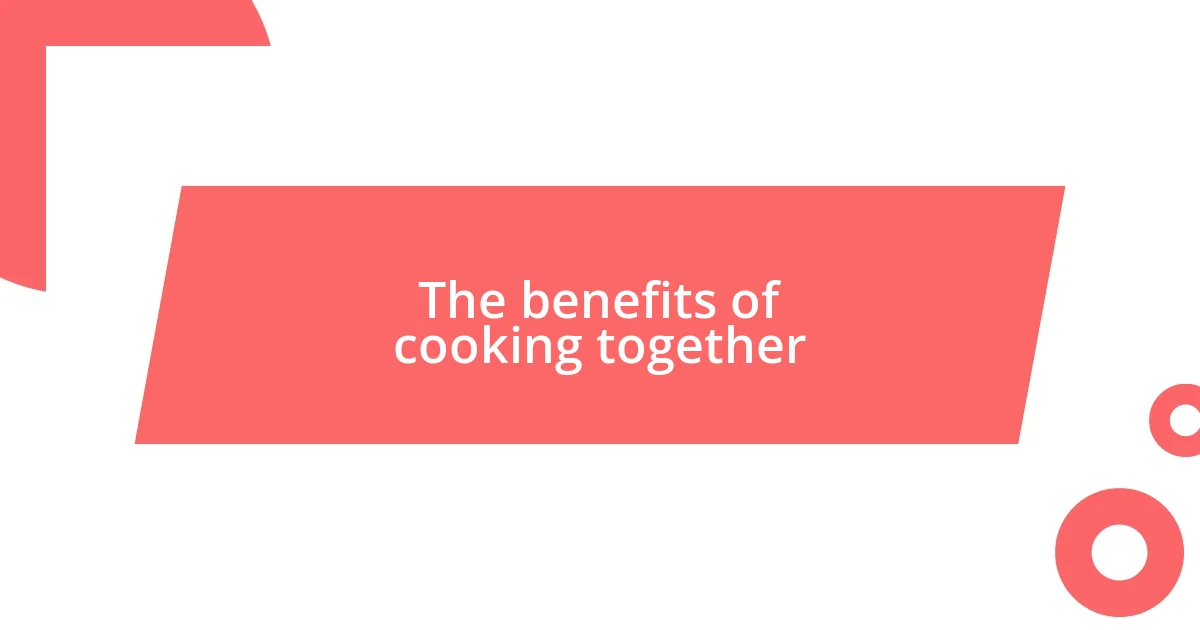
The benefits of cooking together
Cooking together creates a unique bond that transcends the kitchen. I still remember the first time my child helped me mix batter for pancakes; their little hands were covered in flour, and the laughter we shared made the morning truly joyful. Isn’t it amazing how something as simple as mixing ingredients can lead to such precious memories?
When kids cook alongside me, I notice a significant boost in their confidence. They take ownership of the meal, from choosing the ingredients to plating their creation. I often ask them, “What do you think we should add to make this even better?” Seeing their eyes light up with ideas reminds me of how empowering it is to involve them in the process.
Not only does cooking together nourish our bodies, but it also feeds our connection as a family. I’ve found that our conversations flow freely while we chop, stir, and taste, turning meal prep into a cherished routine. Have you ever noticed how the kitchen can transform into a safe space where everyone feels comfortable sharing their day’s highlights and struggles? Cooking together has certainly turned our mealtime into something much more meaningful.
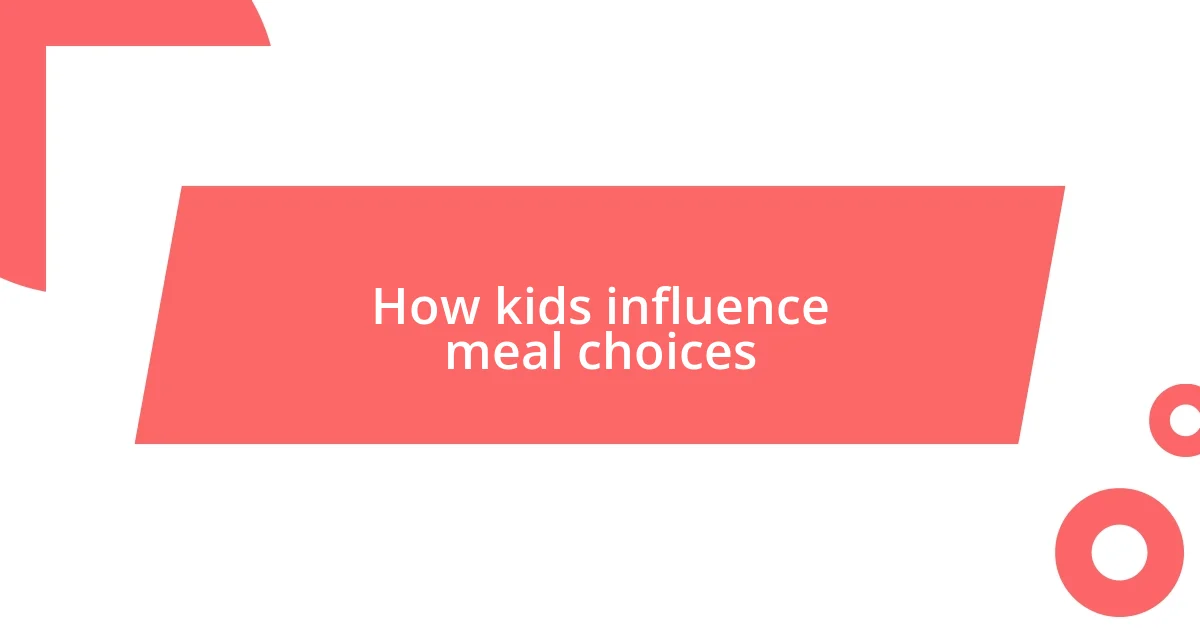
How kids influence meal choices
When my kids step into the kitchen, their preferences and interests immediately steer our meal choices. For instance, recently, my daughter insisted on adding spinach to our pasta, something I might have overlooked. Seeing her excitement not only encouraged me to embrace color and variety in our meals but also helped us both develop a taste for healthier ingredients. It’s in these moments that their curiosity sparks creativity.
Here are a few ways kids influence meal choices:
- Favorite foods: They often gravitate toward familiar dishes, prompting me to explore healthier variations.
- Ingredient experimentation: Kids are naturally curious; they love the chance to pick out new veggies or fruits, helping to diversify our meals.
- Feedback loop: Their reactions to meals guide my future choices, sparking a conversation about flavors they enjoy or don’t.
- Theme nights: Sometimes, they’ll suggest themes, like “Taco Tuesday,” which adds fun and helps break the routine.
- Involving friends: When kids have buddies over, their input can influence the meal, leading to unexpected and exciting culinary adventures.
This ever-evolving dance between their tastes and our culinary repertoire keeps our family meals joyful and dynamic.
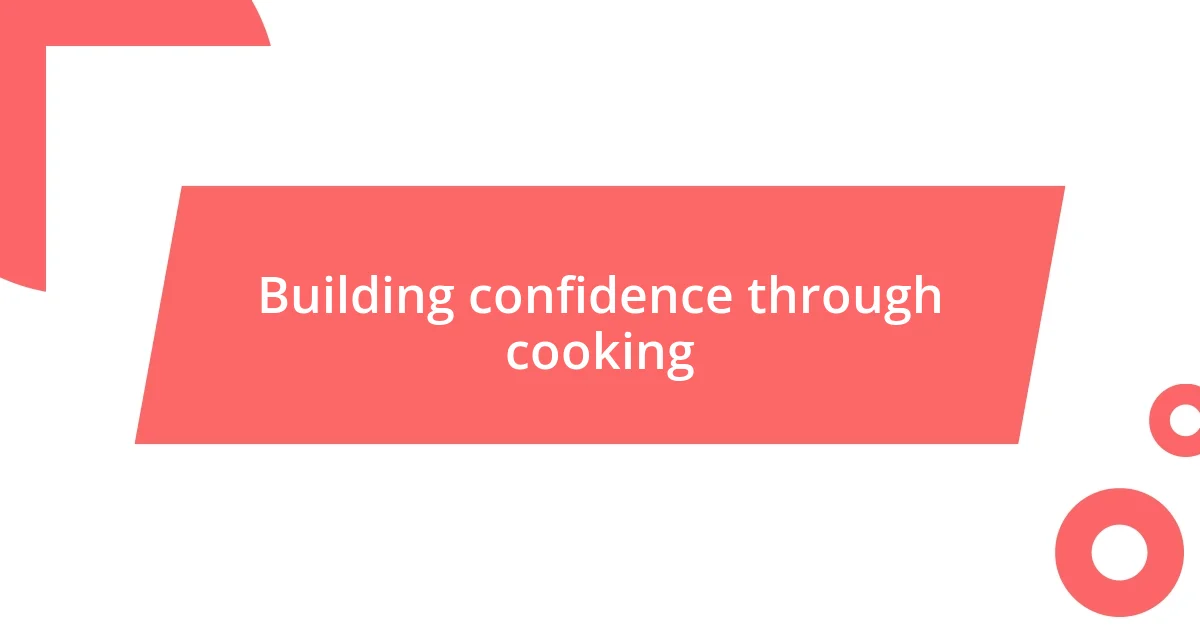
Building confidence through cooking
Cooking with my kids has truly built their confidence in ways I didn’t expect. I remember when my youngest wanted to bake cookies for a school bake sale. They took the lead, measuring ingredients and mixing with such determination. It was heartwarming to see them proudly present their creation, and the thrill of receiving compliments from their friends made them glow with pride. Isn’t it remarkable how achieving a small goal in the kitchen can lead to big feelings of accomplishment?
When they take active roles in our cooking routine, I observe profound changes in their self-assurance. They begin to assert themselves; for example, my son surprised me by suggesting we try a new spice in our soup one evening. That willingness to experiment, even if it led to a less-than-perfect meal, showcased their bravery. It reminded me that every successful meal is a tiny victory that builds their culinary confidence.
Through cooking, I’ve seen firsthand how important it is to create an environment where kids can express their ideas and take ownership. I often encourage them by saying, “You have great ideas; let’s put them into action!” Watching their confidence grow in the kitchen translates to other areas of their lives as well. The kitchen has become a place of exploration and empowerment, where we celebrate each others’ creativity.
| Cooking with Confidence | Observations |
|---|---|
| Ownership of Tasks | Kids feel accomplished when they lead certain cooking steps. |
| Experimentation | Trying new ingredients builds curiosity and confidence. |
| Positive Reinforcement | Compliments on their creations encourage them to keep trying. |
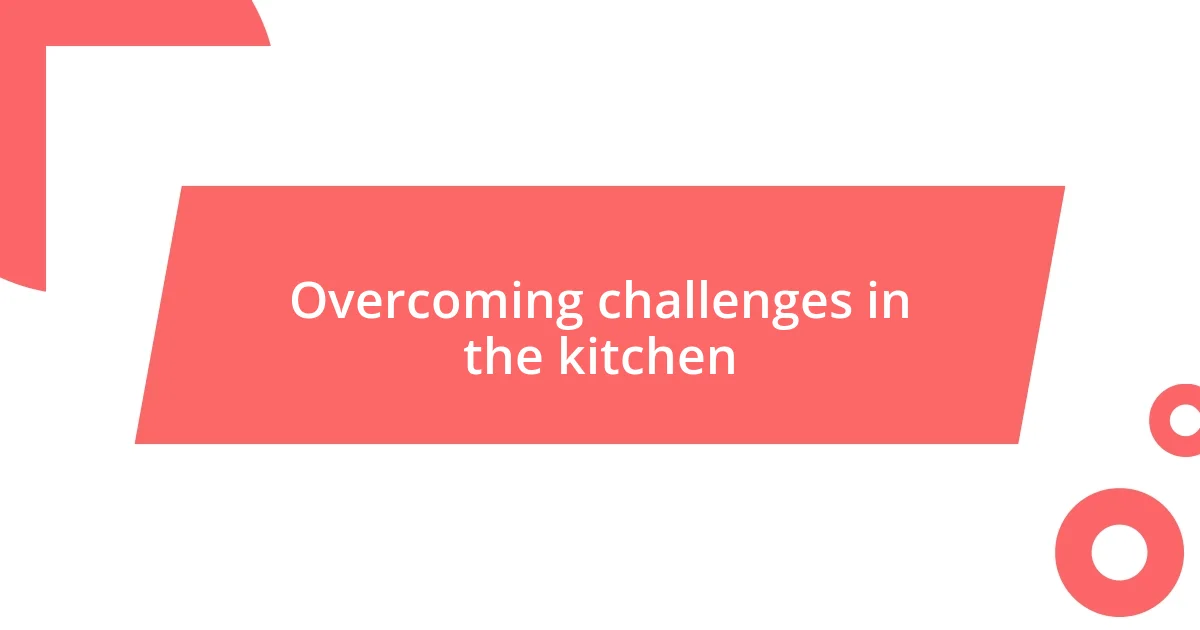
Overcoming challenges in the kitchen
One of the biggest challenges I faced in the kitchen was managing the chaos that inevitably comes with cooking alongside enthusiastic little ones. I remember a time when my daughter, in her excitement, knocked over a bowl of flour just as we were about to start our pancake feast. Sure, it turned into a mess that took a while to clean, but that moment taught me patience and the importance of embracing spontaneity. Isn’t it fascinating how a little bit of chaos can sometimes lead to even greater kitchen memories?
Another hurdle I encountered was accommodating everyone’s tastes while trying to keep meals healthy. The trick I learned was to create a “build-your-own” style dinner. For instance, taco night became a family favorite because it allowed everyone to customize their meal. My son went wild with toppings, opting for everything from lettuce to olives. By giving them the freedom to choose, I found that it alleviated stress and made the cooking experience more enjoyable for all of us.
Lastly, I found that communication is key when tackling these kitchen challenges. When my kids had a say in meal prep, it transformed our cooking process. I recall the evening a simple dinner melted into an impromptu discussion about nutritional values, as they asked questions about the ingredients we were using. This not only made me feel proud but also empowered them to think critically about their food choices. How can we expect kids to appreciate cooking if we don’t involve them in the learning process?










